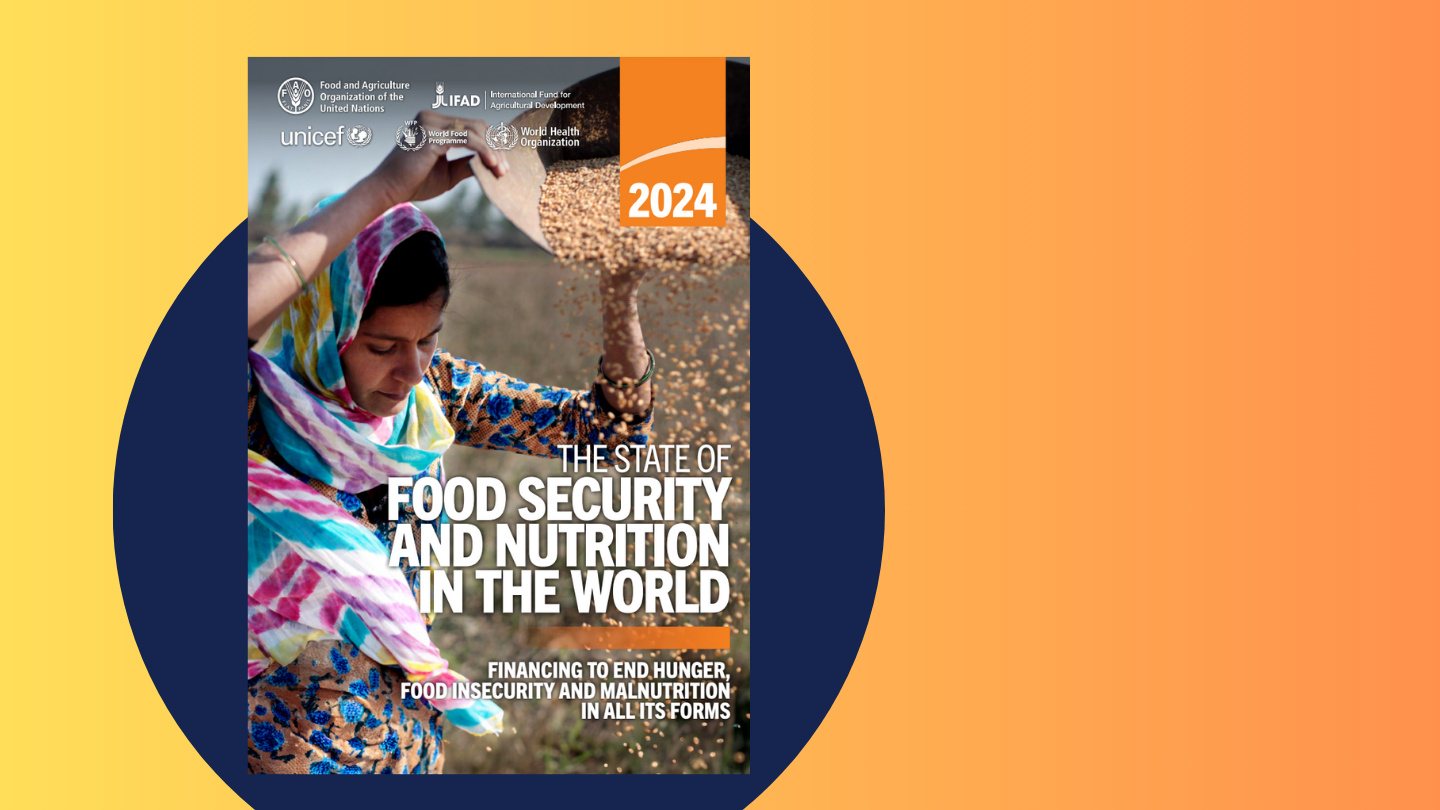Financing to end hunger, food insecurity and malnutrition in all its forms
Links

Six years from 2030, hunger and food insecurity trends are not yet moving in the right direction to end hunger and food insecurity (SDG Target 2.1) by 2030. The indicators of progress towards global nutrition targets similarly show that the world is not on track to eliminate all forms of malnutrition (SDG Target 2.2). Billions of people still lack access to nutritious, safe and sufficient food.
The world is still far off track to achieve Sustainable Development Goal (SDG) 2, Zero Hunger, with the global prevalence of undernourishment persisting at nearly the same level for three consecutive years after having risen sharply in the wake of the COVID-19 pandemic. Between 713 and 757 million people may have faced hunger in 2023 – one out of 11 people in the world, and one out of every five in Africa. Hunger is still on the rise in Africa, but it has remained relatively unchanged in Asia, while notable progress has been made in the Latin American and Caribbean region.
Nevertheless, progress in many countries provides hope of the possibility of getting back on track towards hunger and malnutrition eradication. Implementing the policies, investments and legislation needed to revert the current trends of hunger, food insecurity and malnutrition requires proper financing for food security and nutrition.
Despite a broad agreement on the urgent need to increase financing for food security and nutrition, the same cannot be said for a common understanding regarding how this financing should be defined and tracked. The report provides a long-awaited definition of financing for food security and nutrition and guidance for its implementation.
There are recommendations regarding the efficient use of innovative financing tools and reforms to the food security and nutrition financing architecture. Establishing a common definition of financing for food security and nutrition, and methods for its tracking, measurement and implementation, is an important first step towards sustainably increasing the financing flows needed to end hunger, food insecurity and all forms of malnutrition, and to ensure access to healthy diets for all, today and tomorrow. In the run-up to the Summit of the Future 2024, and the Fourth International Conference on Financing for Development in 2025, the theme of this year’s report is particularly timely.
The United Nations State of Food Security and Nutrition in the World 2024 report was launched on 24 July 2024 at the G20 Brasil 2024 Global Alliance against Hunger & Poverty Task Force Ministerial Meeting.
The Donor Platform Secretariat Coordinator, Maurizio Navarra, was part of the SOFI 2024 Financial Technical Advisory Committee on innovative public and private financing for food security and nutrition.
The committee was facilitated and moderated by The Shamba Centre for Food & Climate. The full list of committee members are:
Danny Bradlow, University of Pretoria, South Africa
Paul Clements Hunt, Blended Capital Group and former head of UNEP Finance Initiative
Sylvain Coutu, AXA Insurance
Mary D’Alimonte, Results for Development
Greg Garrett, Access to Nutrition Initiative
Hamid Hamirani, EHA Advisory and Food Systems for the Future
Agnes Johan, Rabobank
Michael Kühn, WelthungerHilfe
John Mundy, One Acre Fund
Maurizio Navarra, Global Donor Platform for Rural Development
Tom Osborne, Skyline Partners
Oluwatoyin Oyekenu, Climate Bonds Initiative
Liliana Rojas, IFPRI
Niraj Shah, International Finance Corporation
Meera Shekar, World Bank
Jerry Skees, Global Parametrics












































































































































































































